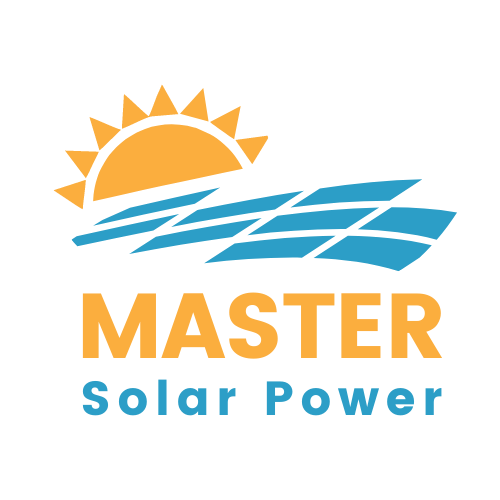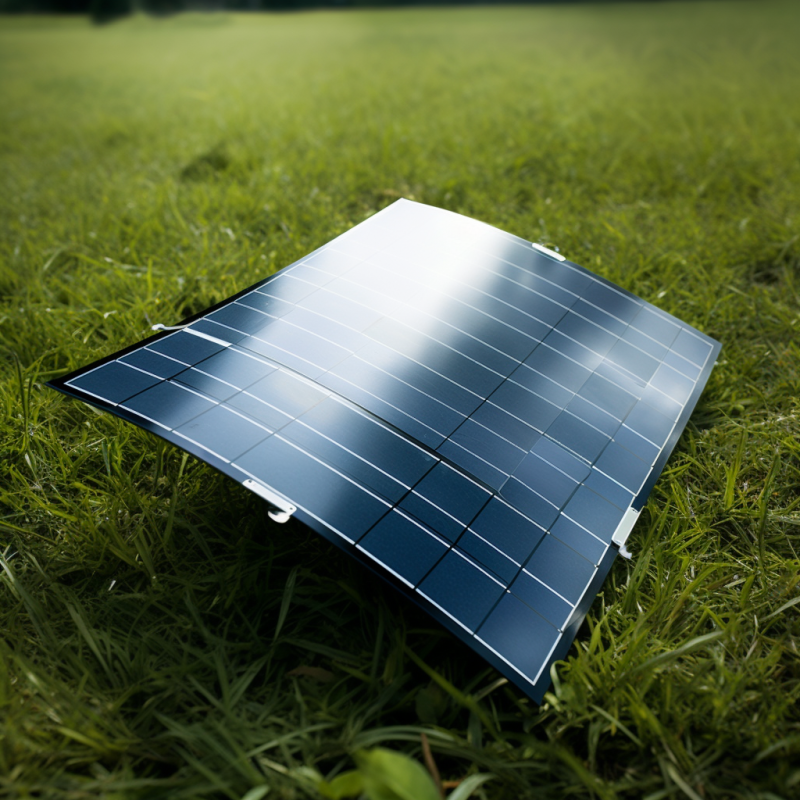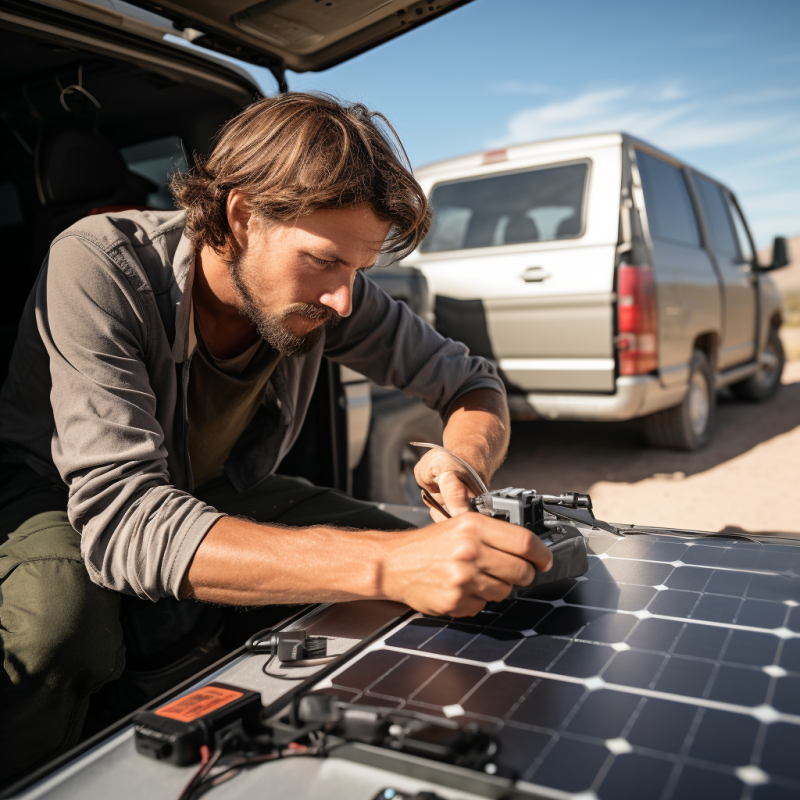Are you an adventurous spirit, always on the road with your trusty RV?
Or perhaps you’re an eco-conscious traveler, keen on minimizing your carbon footprint?
Whatever your motivation, harnessing solar power for your RV opens up a world of possibilities.
Not only does it offer a reliable and renewable source of energy, but it also adds to the autonomous nature of RV living, allowing you to camp off-grid without sacrificing your comfort.
Solar panels for RVs are more than just a trendy gadget; they’re a powerful tool that can significantly enhance your traveling experience.
By converting sunlight into electricity, they can power everything in your RV, from lights and appliances to electronic devices.
But with so many options available, choosing the best one can be overwhelming.
That’s where this blog post comes in.
We’ve done the legwork for you, researching and reviewing countless solar panels to bring you the top five options for DIY RV.
We’ll delve into the specifics of each model, discussing their features, pros, cons, and user feedback to give you a comprehensive understanding of what each one brings to the table.
But we won’t stop there. We’ll also briefly overview how solar panels work and why they’re such a valuable addition to your RV.
Plus, we’ll guide you through choosing the right solar panel based on factors like efficiency, price, and brand.
Whether you’re a seasoned RV owner looking to upgrade your setup or a newbie just starting, this article is your go-to guide for everything you need to know about RV solar panels.
So buckle up and prepare to embark on a journey towards sustainable and independent RV living.
Let’s dive in!
In this post, we'll discuss:
Understanding Solar Panels and How They Work
Photovoltaic (PV) panels, commonly known as solar panels, convert sunlight into usable electricity.
These panels are increasingly used in various settings, including recreational vehicles (RVs), due to their renewable nature and ability to provide a sustainable energy source.
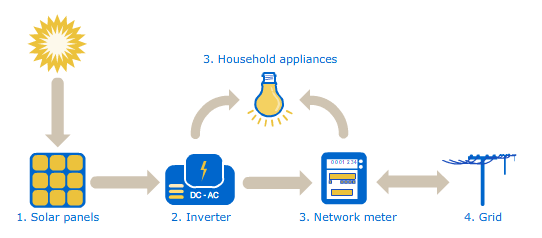
Solar panels can power appliances and systems, eliminating reliance on external power sources or fuel reserves.
This not only offers environmental benefits but also enables RV users to explore off-grid locations without worrying about access to conventional power supplies.
The operation of PV panels isn’t significantly affected by weather conditions; they can still produce electricity even in cloudy conditions.
Here’s a high-level overview of their operation in the context of an RV:
Sunlight Absorption
Comprising smaller units called solar cells, typically made of silicon, solar panels absorb sunlight when it strikes them.
Electric Current Creation
The energy from the absorbed photons (light particles) is enough to displace electrons from their atoms, generating an electric current.
This is a result of the photovoltaic effect.
Direction of Electricity
The electric fields within solar panels guide these free electrons to flow in a specific direction, creating a direct current (DC).
Conversion to Usable Electricity
An inverter then takes this DC and converts it into alternating current (AC), which is the standard form of power for most appliances and devices.
Powering Your RV
This AC electricity can now power your RV. If there’s any surplus power, it can be stored in a battery for later use.
The number of solar panels needed to power an RV depends on several factors including the RV’s average electricity consumption, the amount of peak sun hours at your location, and the wattage of the panels.
To maximize the efficiency of your solar panels, it’s recommended to use them during the peak sunlight hours for your location.
To calculate the solar power required for your RV, you can look at past energy usage and compute your RV’s hourly energy requirement.
Multiply this by the peak sunlight hours for your area, and then divide by a panel’s wattage.
Solar power for RVs is not only a sustainable energy source but also offers independence from traditional power sources, making it a vital addition for any long-term traveler.
However, choosing the right solar panel for your RV requires careful consideration of several factors – the RV’s power consumption, available space for panel installation, and budget constraints.
By understanding how solar panels work and assessing your energy needs, you can ensure an efficient and reliable power source for your RV adventures.
Top 5 Solar Panels for DIY RV
Embarking on a self-sufficient journey in your RV is an exhilarating prospect, but it requires careful planning and the right equipment.
One crucial component for any DIY RV enthusiast is a reliable solar panel system.

It’s the most eco-friendly and cost-effective way to keep your home-on-wheels powered wherever you roam. With the market saturated with options, finding the right one can be daunting.
But worry not, we’ve researched for you.
In this section, we’ll dive into the top five solar panels for DIY RV.
We’ve considered efficiency, durability, ease of installation, and value for money.
Whether you’re a seasoned RV traveler or a beginner looking to start an off-grid adventure, our carefully curated list will guide you toward the solar panel system that best fits your needs.
Renogy 100 Watt 12 Volt Monocrystalline Solar Panel
The 100W 12 Volt Monocrystalline Solar Panel from Renogy is a compact and reliable solar panel, high in power yet small.
It’s designed with off-grid applications in mind, making it an excellent choice for RVs, motorhomes, cabins, marine areas, home backup power, and more.
Here are some key features:
High Efficiency
This monocrystalline solar panel delivers a stable output of an average 500Wh (Watt-hours) of electricity per day, depending on sun availability.
This makes it ideal for charging small devices and maintaining a steady power supply.
Compact and Reliable
It is compact in design, which makes it easy to mount and perfect for space-limited applications.
Despite its small size, it’s highly reliable, providing a consistent power output.
Durable Construction
It offers lightweight aluminum frames and shatter-resistant glass, ensuring it can withstand weather conditions for a long time.
Versatile Use
It is perfect for use in various settings, including RVs, motorhomes, cabins, marine areas, home backup power, and more.
Off-Grid Application
This solar panel is the perfect option for any off-grid application.
It can provide power in remote locations, making it an excellent choice for outdoor adventures or homes far from the grid.
Regarding power output, Renogy’s 100W monocrystalline solar panel can provide an average of 400-500 Watt-hours (Wh) or 33-41 Amp-hours (Ah) of electricity per day, depending on sun availability.
Typically, a 100-watt solar panel at its maximum efficiency can charge a single 100Ah 12V battery daily, given at least 8 hours of unobstructed sunlight.
Please note that while this solar panel is powerful enough to charge small devices like LED lights, laptops, smartphones, etc., it may struggle when charging larger appliances.
The solar panel might run out of power quickly or fail to handle the load if used for large appliances.
HQST 100 Watt 12 Volt Polycrystalline Solar Panel
The HQST 100 Watt 12 Volt Polycrystalline Solar Panel is a popular choice for solar power enthusiasts due to its efficiency and affordability.
This panel weighs only 14.1 lbs, making it relatively lightweight for its power output.
It contains 64 polycrystalline solar cells protected by a layer of tempered glass, ensuring durability and longevity.
Its primary features include:
Efficiency
The polycrystalline solar cells ensure efficient conversion of sunlight into electricity, making it a cost-effective solution for solar energy needs.
Durability
The solar cells are protected by a rugged and highly transparent layer of tempered glass, which shields them from harsh weather conditions and potential damage.
Versatility
This panel is perfect for various applications, including rooftop home backup power, large solar farms, and signal charging.
It can also be used to charge up a 12V battery or can be wired up with multiple panels in series for a 24V/48V off-grid battery charging system.
Affordability
Compared to other brands, the HQST 100 Watt 12 Volt Polycrystalline Solar Panel offers a competitive price point, making solar power more accessible to a broader range of consumers.
Regarding power output, this 100W solar panel can generate 5.53 amps of power.
It’s designed to charge a 12-volt battery, making it suitable for various applications like rooftop home backup power, large solar farms, or signal charging.
Newpowa 200W 12V Solar Panel
The Newpowa 200W Monocrystalline 200 Watt 12V Solar Panel is a high-performance solar panel designed for off-grid applications.
Here are some detailed descriptions and features of this solar panel:
High Efficiency
The Newpowa solar panel is built with high-efficiency monocrystalline solar cells, which ensures maximum power output.
Specifications
The panel has a dimension of 55.2827.761.38 inches and weighs 24 lbs.
Its maximum power output is 200W, with voltage MPP Vmp(V) of 18.60V and current MPP Imp(A) of 10.76A1.
9BB Cell Technology
This technology reduces the footprint by approximately 20% and enhances the overall performance of the solar panel.
Corrosion-Resistant Frame
The corrosion-resistant frame protects the solar cells from harsh weather conditions, enhancing the product’s lifespan.
Versatile Use
This solar panel is ideal for various applications like RVs, boats, and other off-grid applications.
Durability
The high-performance cells are encapsulated in EVA (ethylene-vinyl-acetate).
They are placed between high transparent low iron tempered glass & a durable TPT (Tedlar-polyester-tedlar) back sheet.
The PV panels are framed using heavy-duty anodized aluminum frames, giving excellent panel rigidity.
Please note that the actual power output will depend on the availability of sunlight and other environmental factors.
WindyNation 100 Watt Solar Panel Off-Grid RV Boat Kit
The WindyNation 100 Watt Solar Panel Off-Grid RV Boat Kit is a comprehensive solar energy solution for RVs, boats, cabins, and remote power use.
This kit is designed to provide free, clean, and renewable power. It offers a sustainable and cost-effective alternative to your energy needs.
Here are some of the critical features of the WindyNation 100-Watt Solar Panel Off-Grid RV Boat Kit:
Solar Panel
It includes a 100-watt monocrystalline solar panel. Monocrystalline panels are known for their high efficiency in converting sunlight into electricity.
Solar Charge Controller
This kit comes with a 30-amp WindyNation P30L LCD Display Solar Charge Controller. This controller is user-adjustable and includes battery temperature sensors that optimize battery charging.
Mounting Hardware
The kit includes mounting brackets allowing for easy installation on various surfaces, including RVs and boats.
Solar Cable and Connectors
It includes solar cable and MC4 Connectors for ‘plug and play’ installation.
Power Output
The 100-watt solar panel can comfortably run small appliances such as laptop and phone chargers, maxifans, LED light bulbs, and DVD players in an RV.
Battery Charging
A 100-watt solar panel at its maximum efficiency can charge a single 100Ah 12V battery in a day, given at least 8 hours of sunlight.
Performance on Cloudy Days
On a typical cloudy day, a 100-watt solar panel will output around 10 to 20 watts.
Remember that the power output can vary based on factors like how cloudy it is, the panel temperature, and the type of charge controller used.
Jackery SolarSaga 100W Portable Solar Panel
The Jackery SolarSaga 100W Portable Solar Panel is a highly efficient and portable power solution for outdoor enthusiasts and those who need a reliable power source on the go.
Here are some key features and details about the product based on various sources:
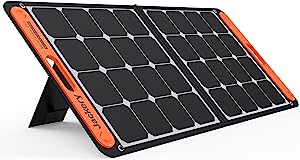
Highly Efficient Solar Cells
The SolarSaga 100W panel is equipped with monocrystalline solar cells known for their high efficiency.
They can convert solar energy into electricity at up to 23%.
This means you can charge your devices faster and more efficiently.
Design and Portability
This solar panel is designed with portability in mind.
It has a foldable design that makes it easy to transport and store.
When unfolded, it measures 48 x 21 x 0.2 inches.
When folded, it measures 24 x 21 x 1.4 inches.
It weighs only 9.1 pounds, making it lightweight and convenient to carry wherever you go.
Easy Setup and User-Friendly
The SolarSaga 100W solar panel has two kickstand.
This allows you to set it up on any surface ground within seconds.
It also features USB and Anderson DC ports, providing versatile charging options.
Durable Build
The solar panel has a durable ETFE material on its surface.
It ensures a longer lifespan and can withstand harsh conditions.
It also has an IP67 Waterproof Rating, allowing it to endure wet weather.
Compatibility
The SolarSaga 100W solar panel can charge Jackery Explorer 290/550/880/1500 power stations (sold separately). It can also charge other devices, such as mobile phones, tablets, and laptops.
Adjustable Angle
The solar panel’s angle can be adjusted, allowing you to position it so it can absorb maximum sunlight.
TPE Rubber Handle
The panel is equipped with a TPE rubber handle, which adds to its convenience and portability.
Overall, the Jackery SolarSaga 100W Portable Solar Panel is a feature-packed, efficient, and reliable solar power solution for outdoor use.
Choosing the Ideal Solar Panel for Your RV
Embracing the freedom of RV life means being self-sufficient, and what better way than to harness the sun’s power? Picking the right solar panel for your RV can seem daunting, but let’s break it down together.
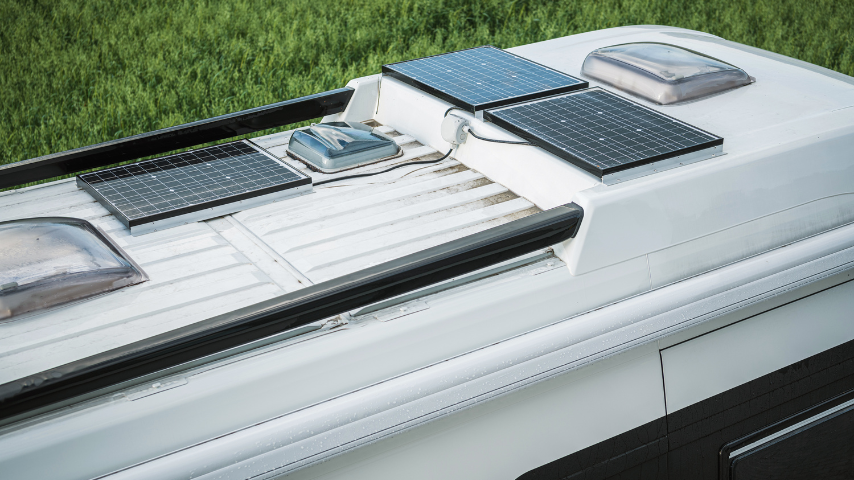
When you’re in the market for a solar panel, think firstly about efficiency.
This refers to how well the panel converts sunlight into usable power.
If you have limited roof space on your RV, a high-efficiency panel will give you more bang for your buck.
Cost is another critical consideration.
While saving money is a good thing, remember that a cheaper panel may not provide the power you need. You’re investing in your freedom here, consider paying a little more for a panel that will serve you for years.
And don’t forget about the brand. Some companies are renowned for their quality solar panels and excellent customer service.
Do your research, read reviews, reach out to other RV enthusiasts, and don’t hesitate to ask questions.
Now, once you’ve chosen your perfect solar panel, you might be wondering about installation and maintenance.
While some handy folks might prefer a DIY approach, professional installation ensures everything is set up correctly and safely.
After installation, your main task is keeping the panels clean.
Regularly removing dirt and debris will keep them working at their best, providing you with reliable power wherever your adventure takes you.
Wrapping Up
Harnessing the sun’s power is not only an eco-friendly way to fuel your adventures.
It is also an affordable solution that can steer you away from the inconvenience when you’re out in the wilderness.
The best solar panels for your RV offer excellent efficiency, durability, and ease of installation.
They should be able to deliver reliable power for all your needs, from charging your devices to running your appliances.
Solar panels are a wise venture for any RV owner.
They provide independence from traditional power sources and lower your carbon footprint.
It can even increase the resale value of your RV.
So, whether you’re a weekend warrior or a full-time nomad, solar power is a game-changer for your RV lifestyle.
Ready to take the plunge into solar?
Visit MasterSolarPower.com today.
We are your one-stop resource for all things solar power.
Here, you’ll find in-depth information on different types of solar panels, installation guides, and honest product reviews.
Harness the power of the sun and let your journey begin with MasterSolarPower.com.
Let the sun power your adventures!
